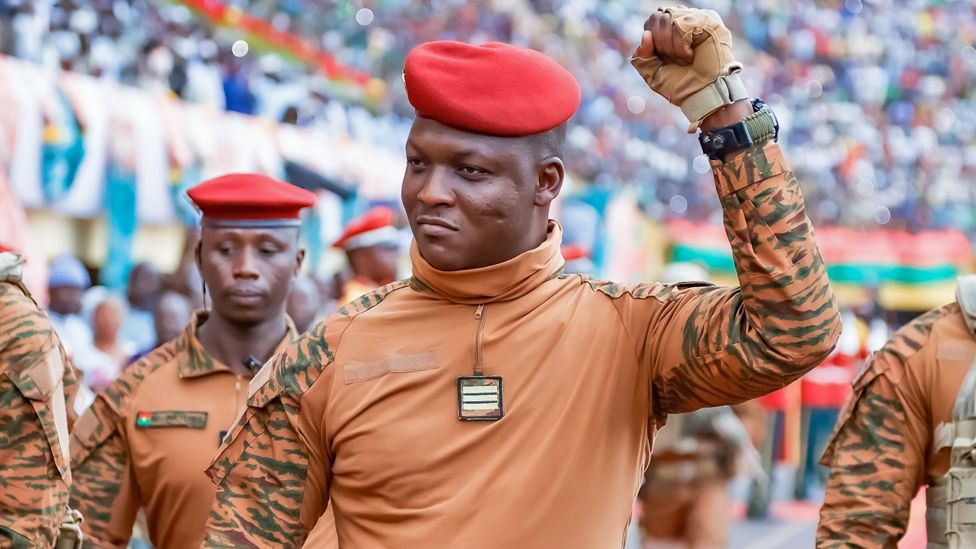Ibrahim Traoré: The Rising Star of Burkina Faso’s Political Landscape
At just 37 years old, Captain Ibrahim Traoré has emerged as a magnetic figure in Burkina Faso’s military leadership, portraying himself as a champion for pan-Africanism and a vocal critic of Western influence in Africa. His efforts to reshape his country’s identity have struck a chord far beyond its borders, gaining him admiration as a modern-day successor to the iconic Thomas Sankara, an influential figure in African revolutionary history.
A Shift in Alliances
Since commandeering power through a coup in 2022, Traoré’s administration has actively distanced itself from France, the former colonial power, while forging strong ties with Russia. This relationship has manifested in various forms including military collaboration, as exemplified by the deployment of Russian paramilitary forces. Moreover, his government has initiated left-leaning economic reforms aiming to nationalize resources and better serve Burkinabé citizens.
Economic Reforms and Resource Management
The junta’s economic strategy involves the establishment of state-owned mining operations that require foreign companies to transfer a 15% stake and skills to local inhabitants. These policies also extend to multinational firms, including a recent license approval for Russian-owned Nordgold in Burkina Faso’s gold sector. Among Traoré’s notable projects is the creation of the nation’s first gold refinery, paired with efforts to establish national reserves of gold.
| Policy Initiative | Description |
|---|---|
| National Mining Company | Establishment of a state-owned entity to manage local mining interests. |
| Foreign Investment Requirements | Mandatory 15% equity stake and skills transfer from foreign firms. |
| Gold Refinery Initiative | Construction of Burkina Faso’s first gold refinery to enhance local processing capabilities. |
Popularity and Public Perception
Traoré’s anti-imperialist and nationalistic messages have resonated deeply, particularly among the youth, a demographic that comprises a significant portion of Burkina Faso’s population. Research indicates a shift in sentiment away from Western democratic ideals, with many seeking alternative forms of governance. According to Enoch Randy Aikins from the Institute for Security Studies, Traoré stands out as potentially Africa’s most celebrated leader.
Support is propelling his image through social media, despite much of it comprising exaggerated claims and misinformation intended to amplify his revolutionary persona. His impactful public speeches, notably at the Russia-Africa summit in 2023, have further embedded him in the collective consciousness of those disillusioned with the status quo.
Challenges and Criticism
Despite his rising popularity, Traoré’s regime faces significant hurdles. A persistent Islamist insurgency continues to pose serious threats to national stability, leading to ethnic tensions spilling over from neighboring countries. His government has also been criticized for stifling dissent, in which critics from various sectors, including healthcare and judicial systems, have faced punitive measures.
International relations, particularly with Western nations, remain strained. Diplomatic tensions were sparked when U.S. military leaders accused Traoré of misusing the country’s resources for personal gain, a narrative that his supporters vehemently deny.
A Future Uncertain
As Burkina Faso grapples with change, Traoré’s compelling persona continues to inspire many, not just within his own borders but across the African continent and its diaspora. His ability to align himself with historical leaders like Sankara while addressing contemporary concerns places him at a critical intersection for both nationalistic and pan-African aspirations.
In summary, while the trajectory of Traoré’s leadership remains unclear, the undercurrents of his appeal—and the decisive shifts in political alignment across West Africa—suggest a pivotal moment that could reshape the region’s future.


